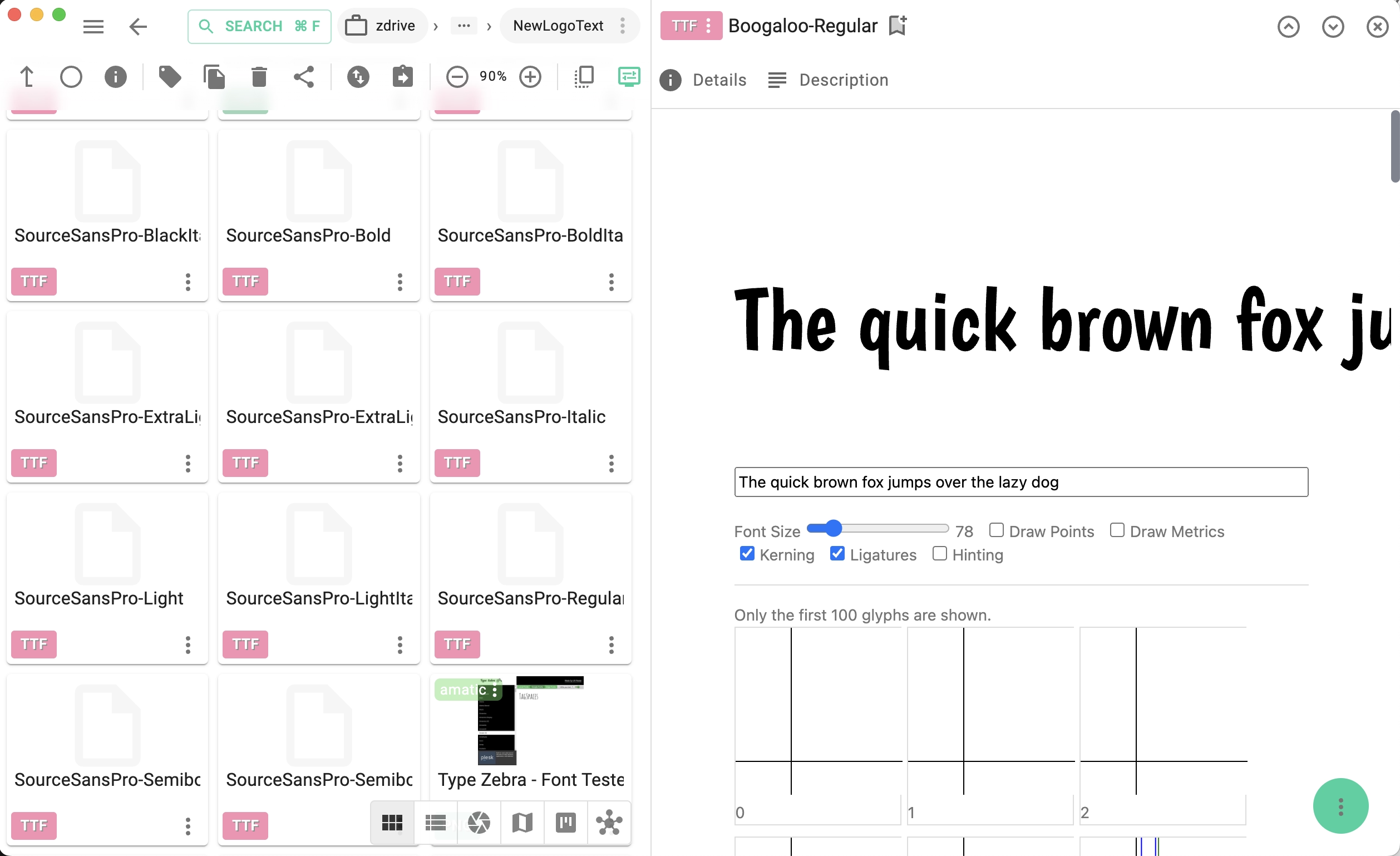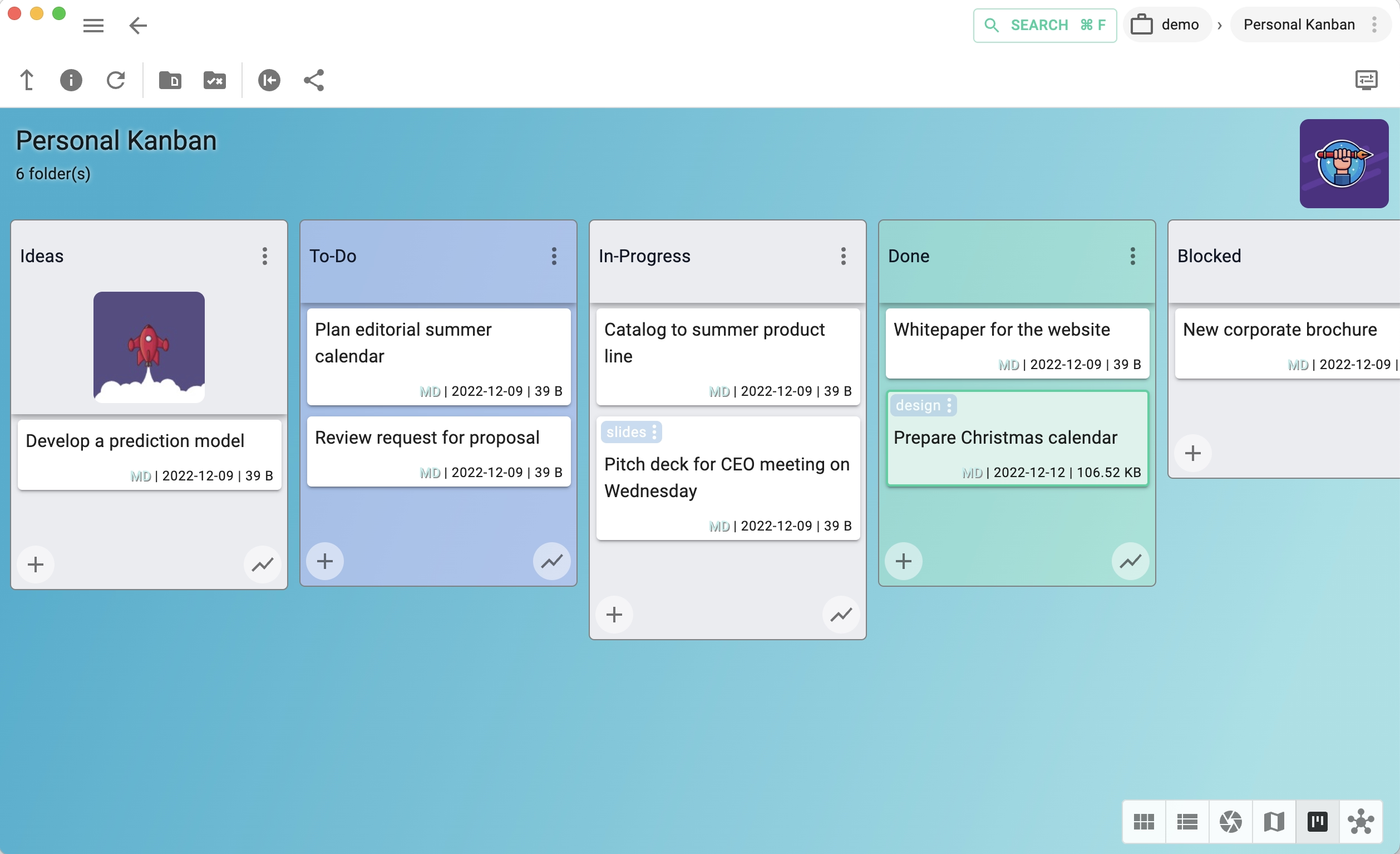Gallery of file-based apps*
Discover insights and experiences shared by power users of TagSpaces products.
File Manager
TagSpaces functions as a basic file manager for both local files and files located on S3 object stor...
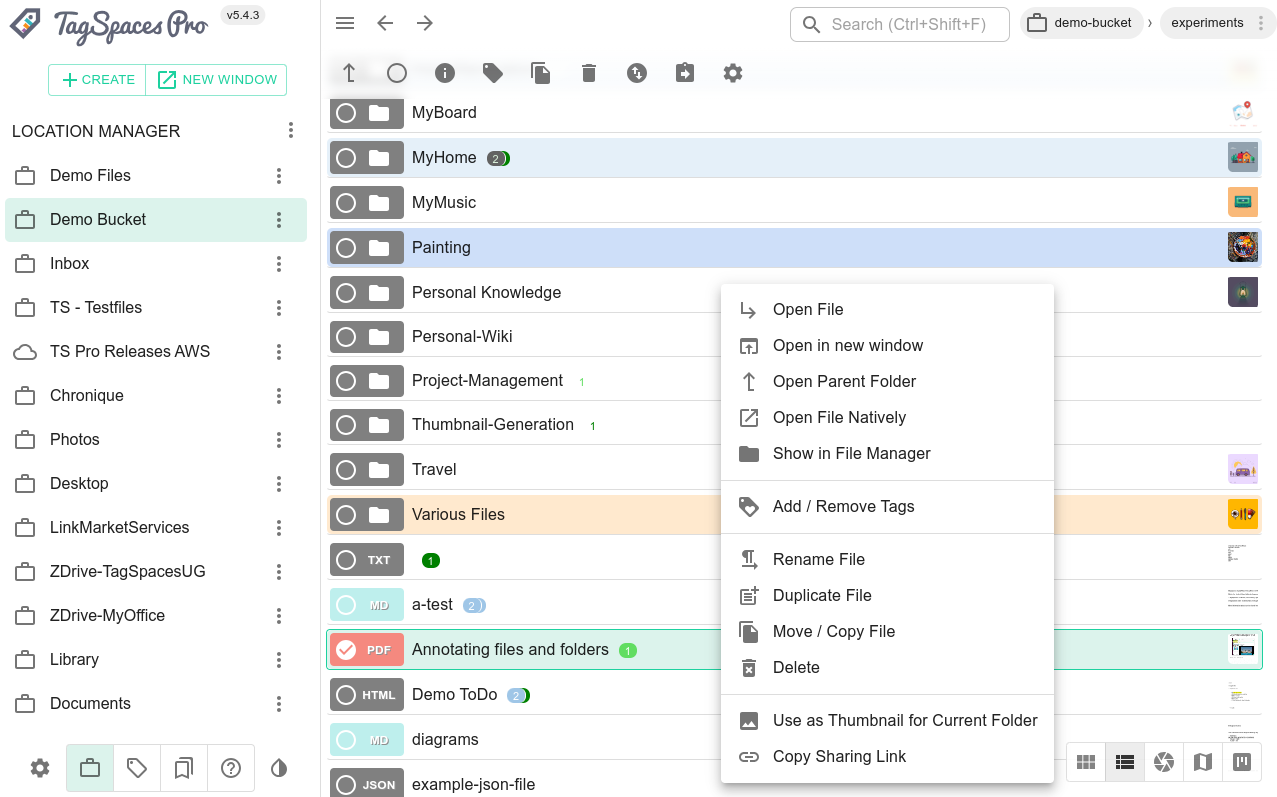
Software Project Management
Thanks to the Kanban perspective you track the development of software projects with the help of boa...
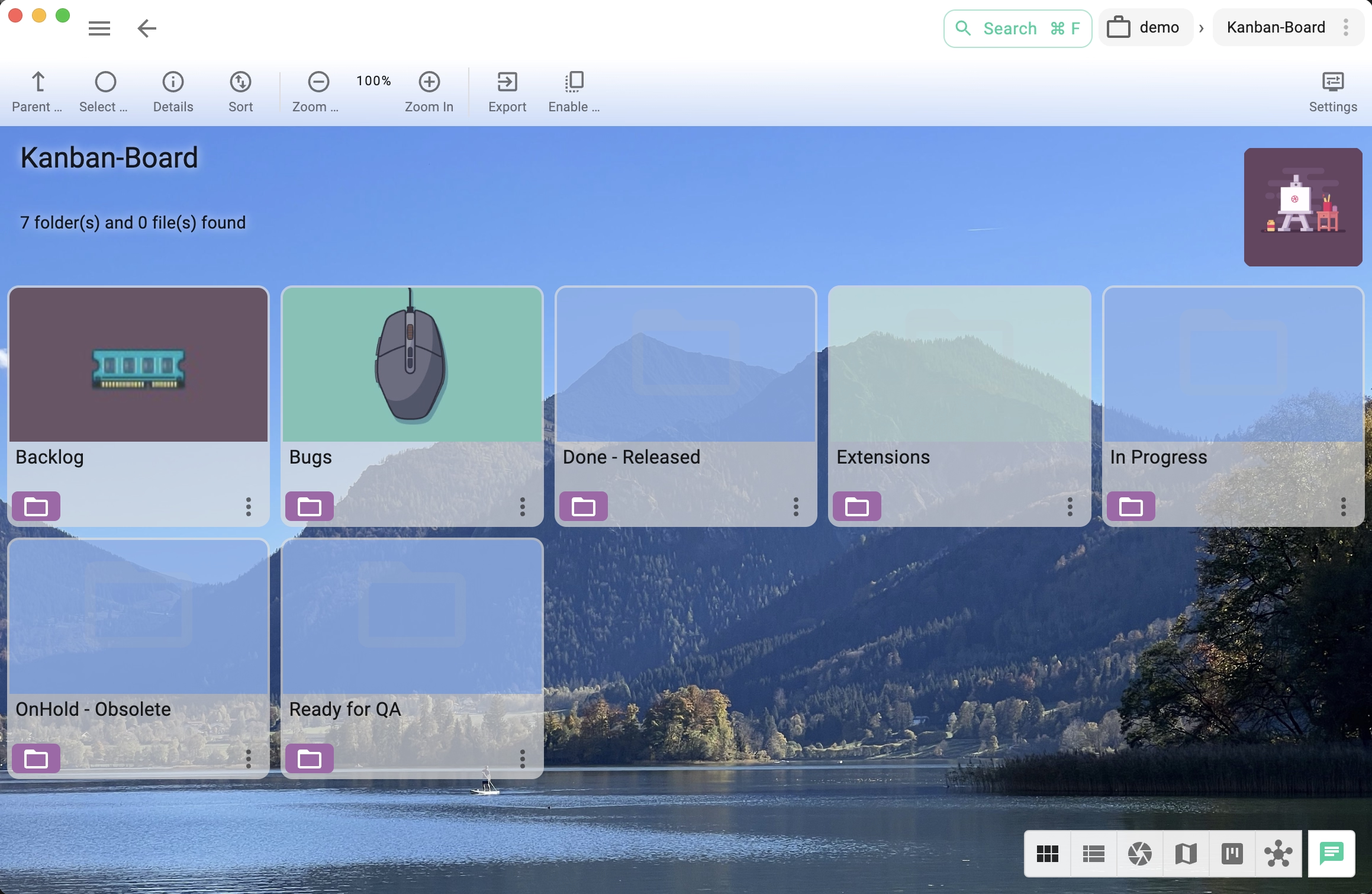
Digital Note-Taking
TagSpaces is ideal for capturing and organizing digital notes. Whether you're drafting ideas, creati...
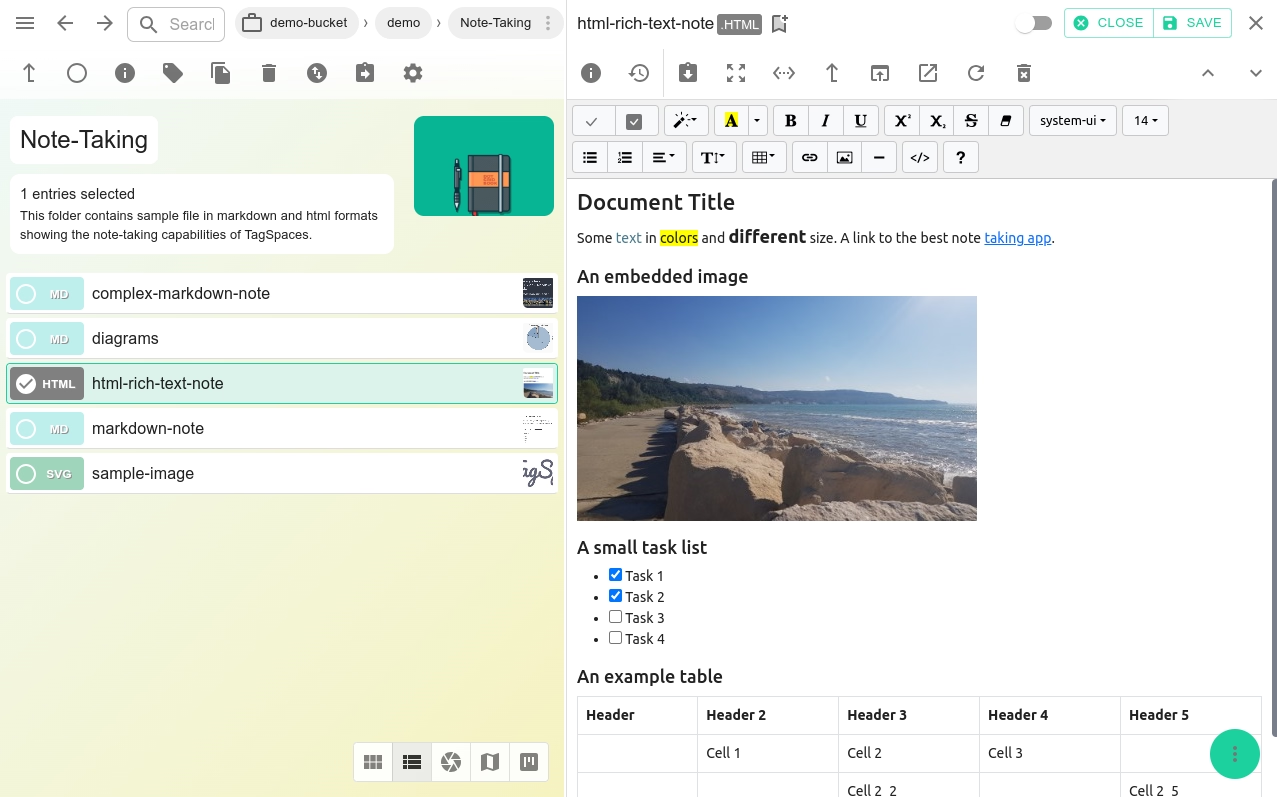
Bookmark Manager
With the web clipper browser extension, you can efficiently organize and access bookmarks within Tag...
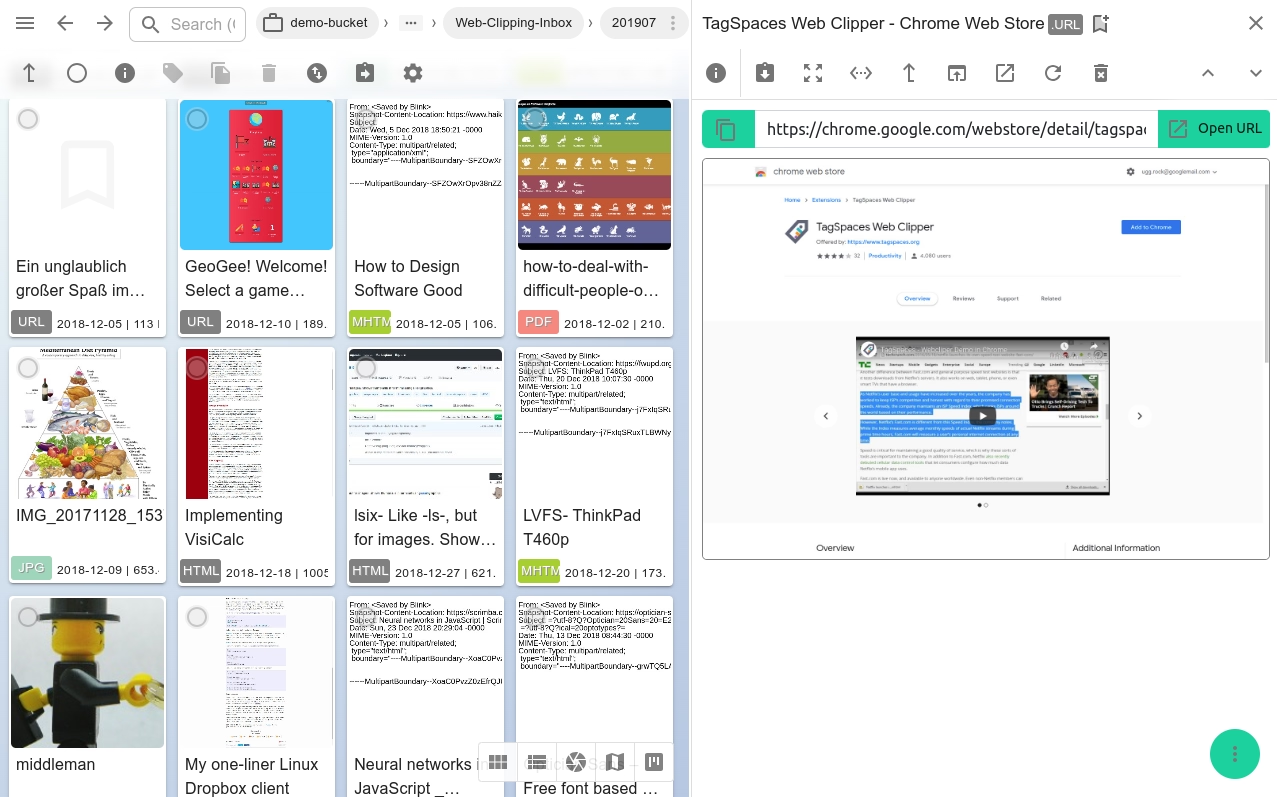
Creating Mindmaps
With the help of the mindmap viewer extension you can the structure of any markdown file into a beau...
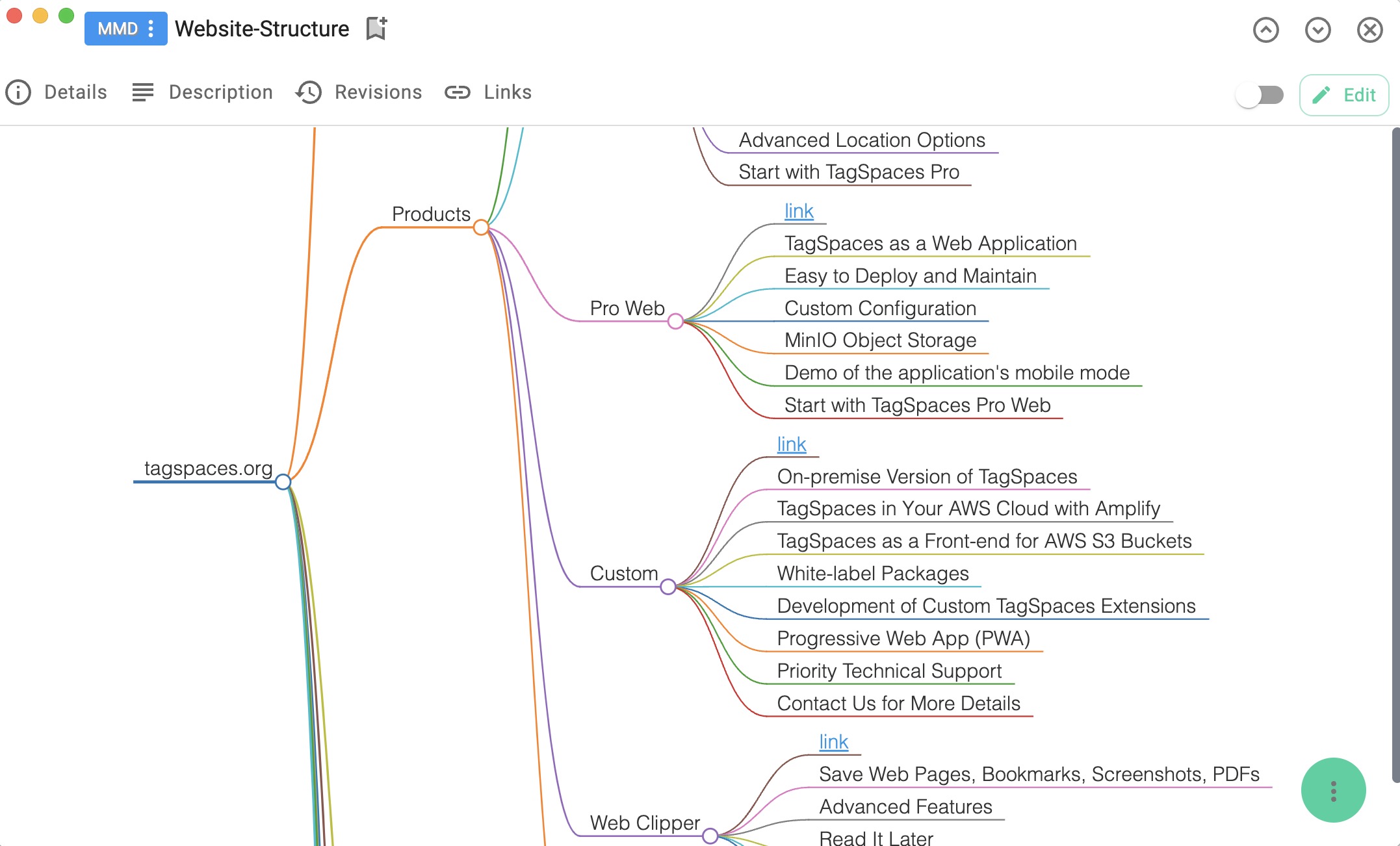
Research Wiki
TagSpaces supports linking files and folders, automatically opening default files like index.html or...
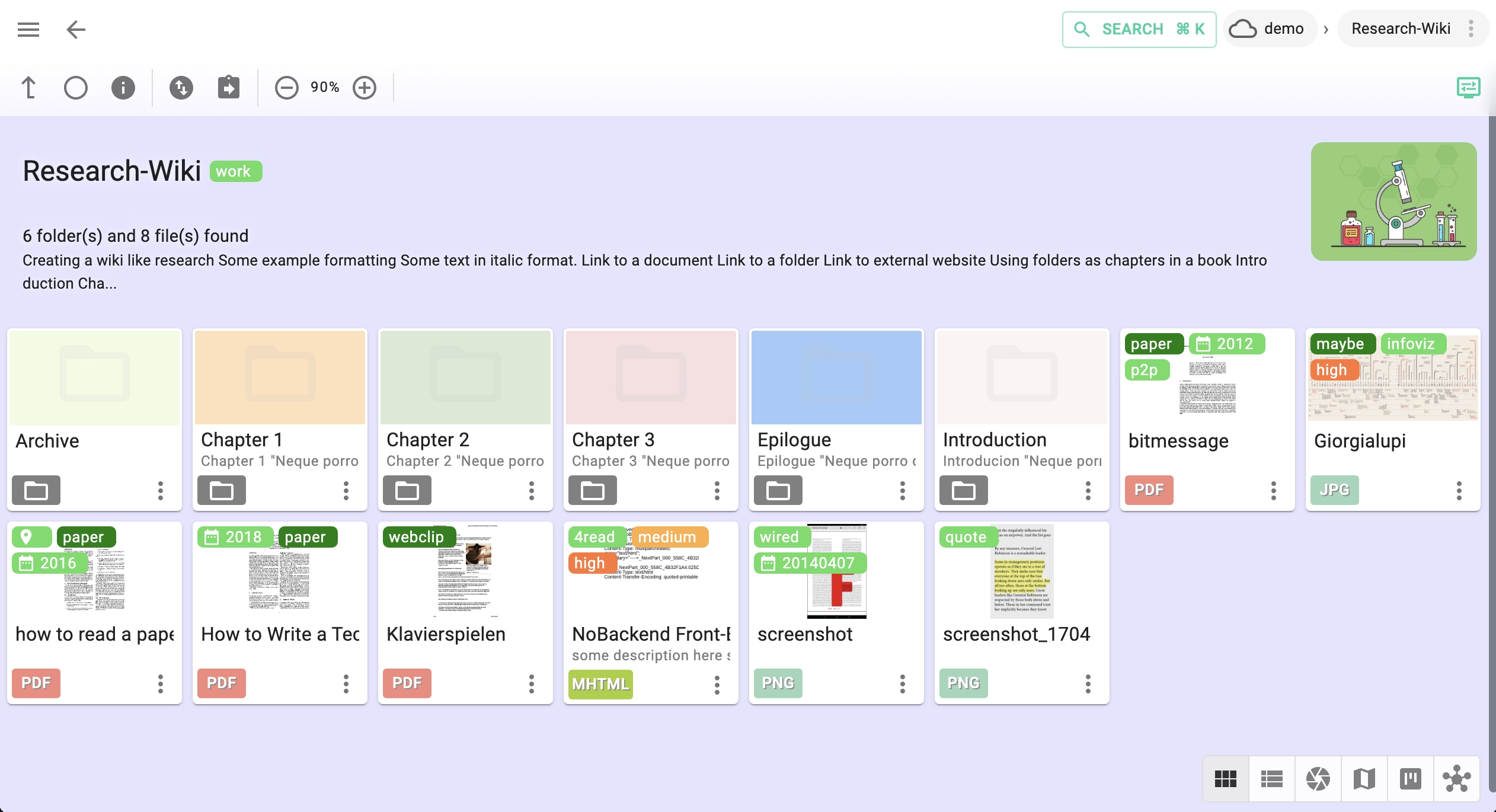
Trip Planner
With geo-tagging, you can plan or document trips. You can create a file with information for every p...
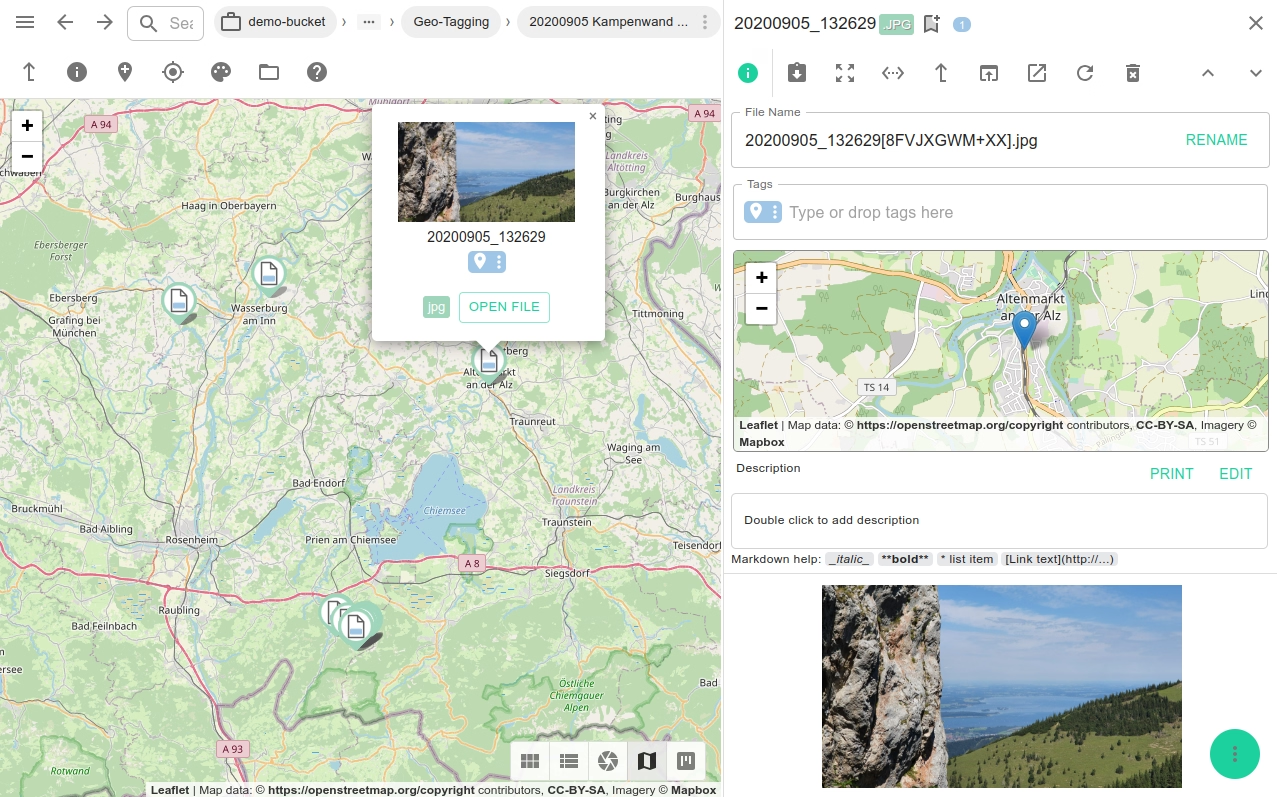
Organize Photos in Galleries
TagSpaces supports previews for numerous image formats and offers various ways to present photos wit...
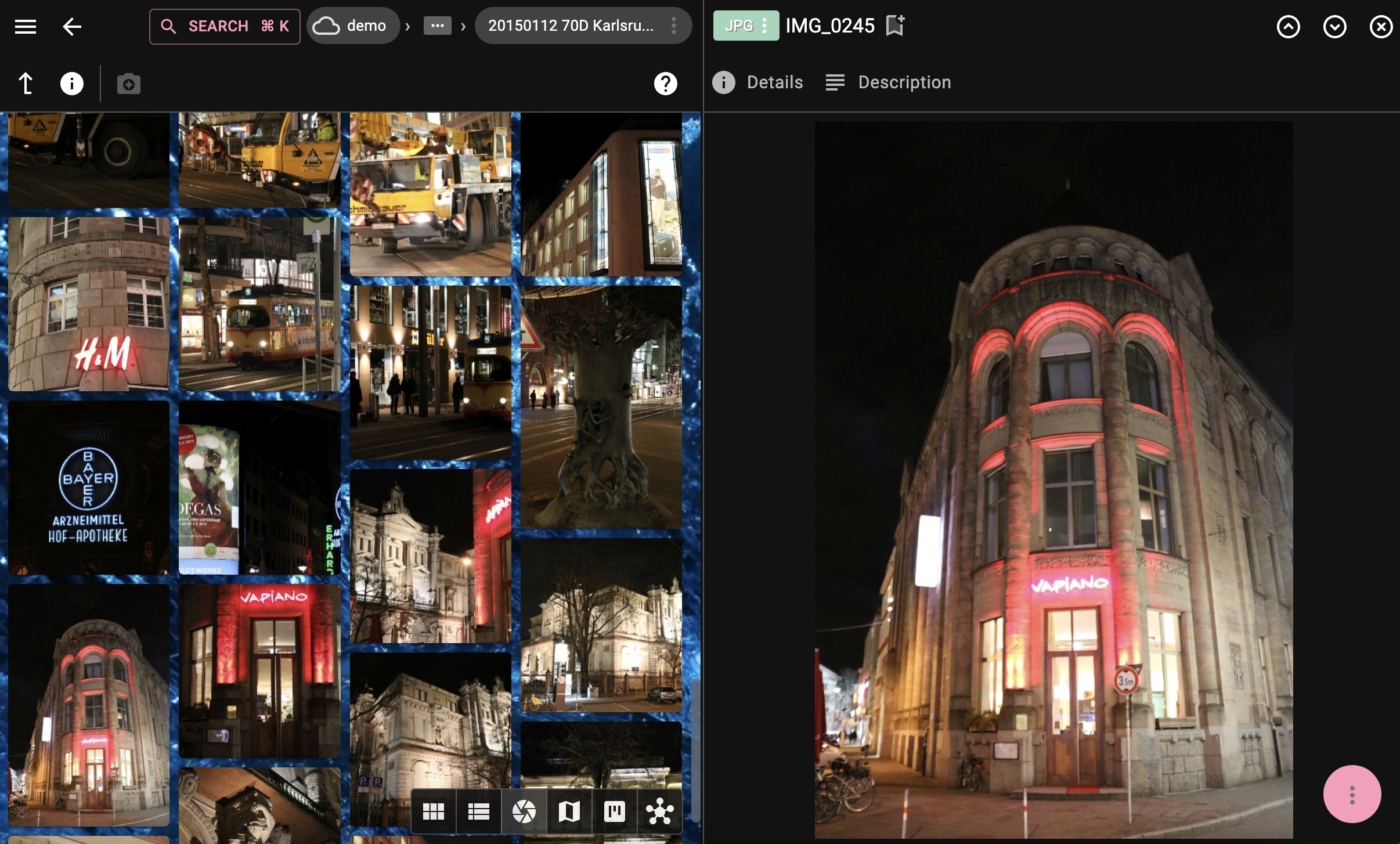
3D Model Manager
This app includes a built-in viewer for 3D models, allowing you to preview and interact with various...
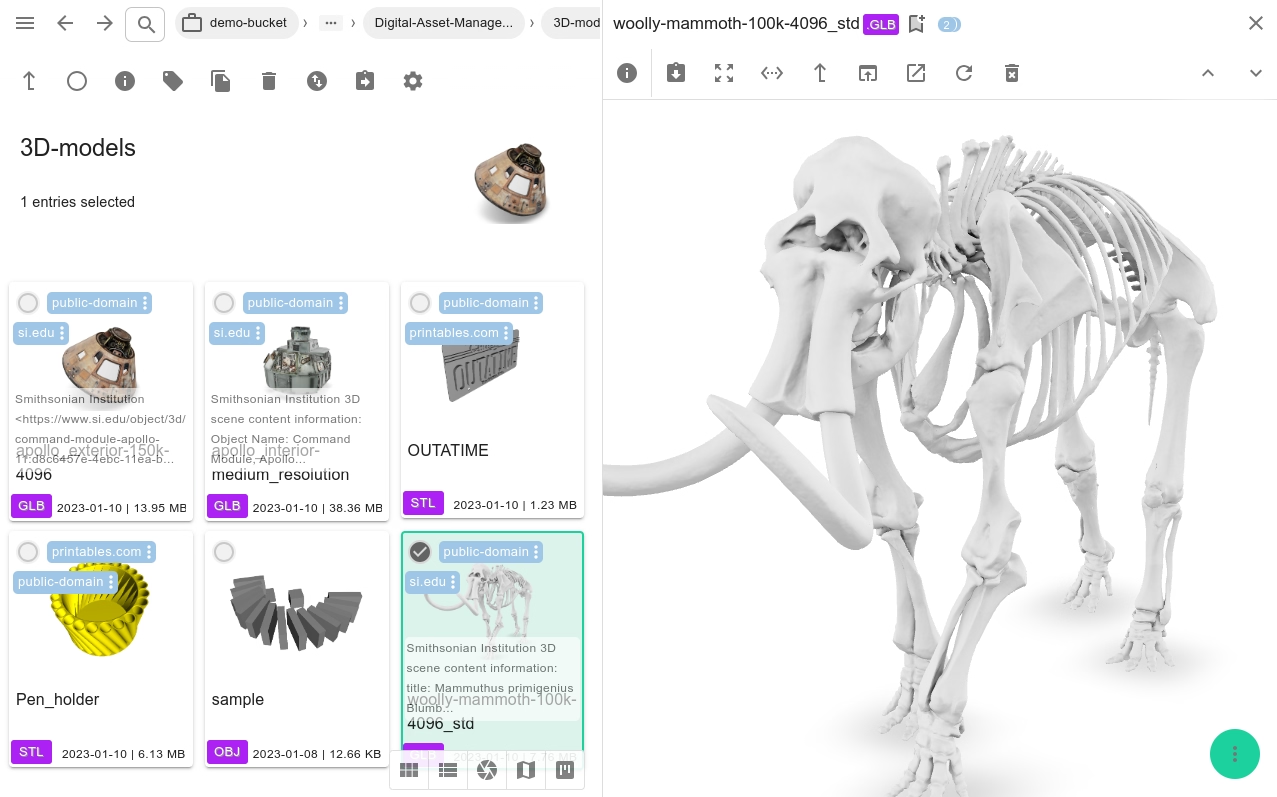
eBooks Library Organizer
Use tags and folders to organize your ePub and PDF eBooks. You can also preview books with the built...
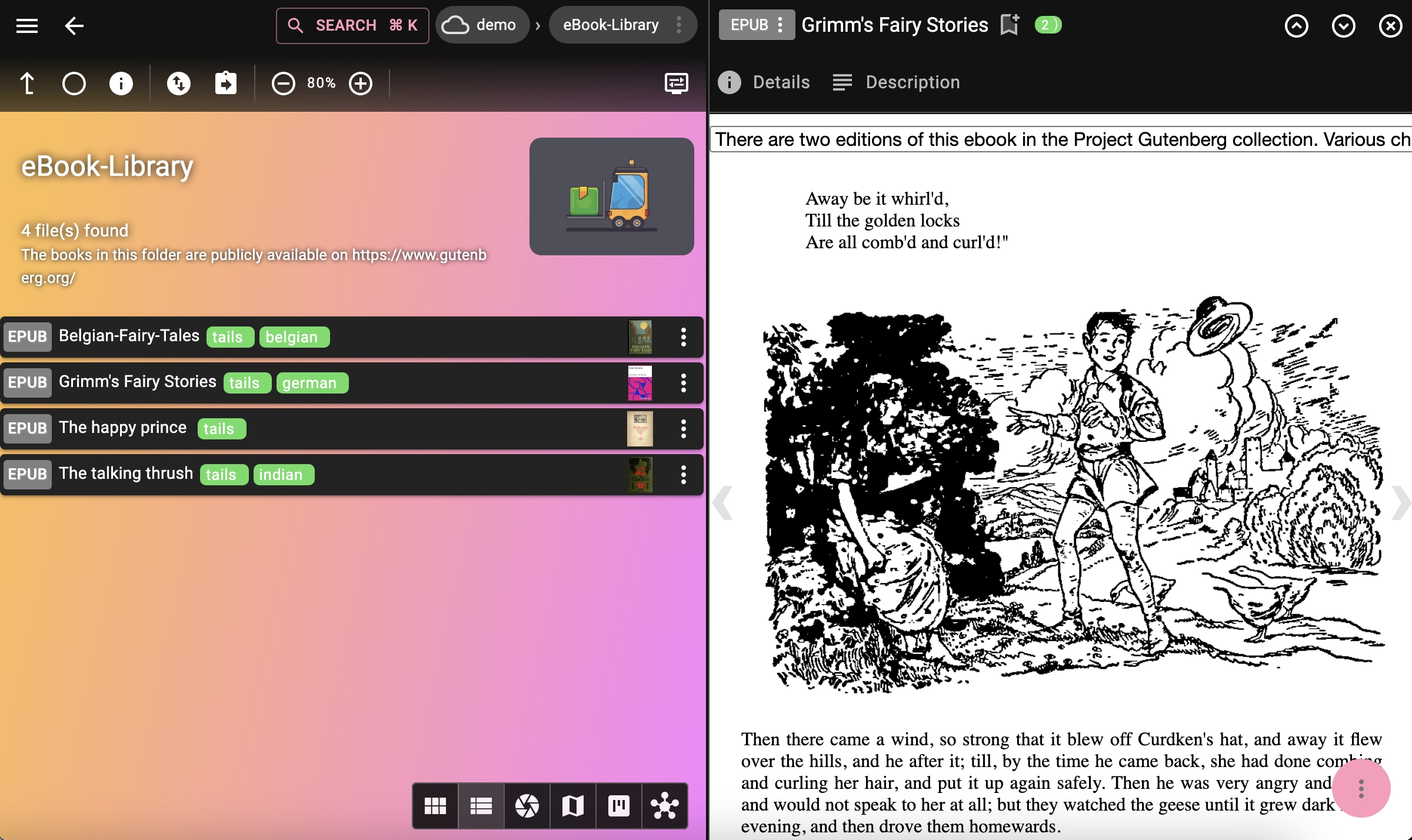
Media Player
Organize and play your local audio and video files. Stream them from an object storage service like ...
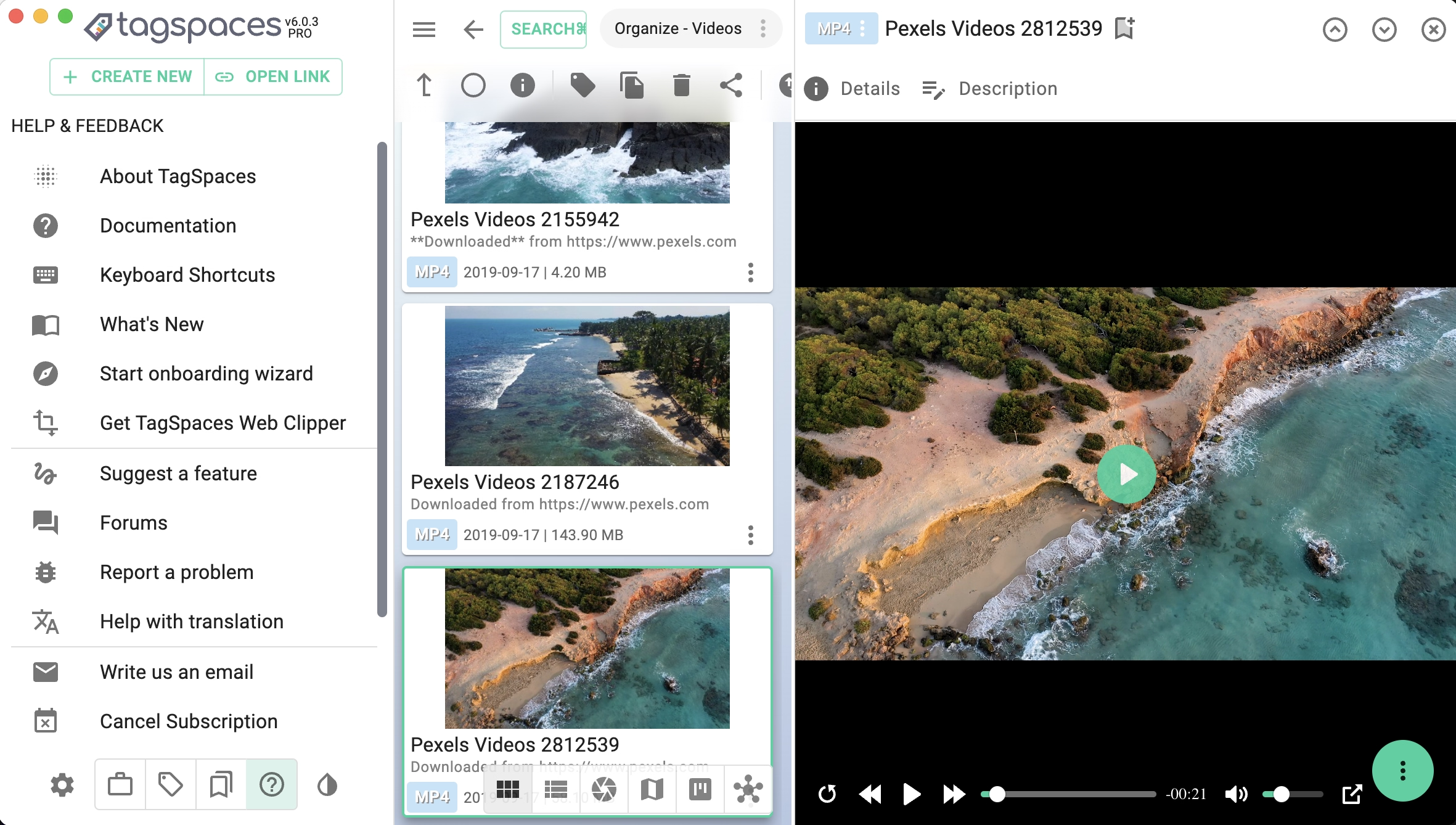
Read It Later App
Save web pages for offline use with the web clipper browser extension, storing them as HTML (editabl...
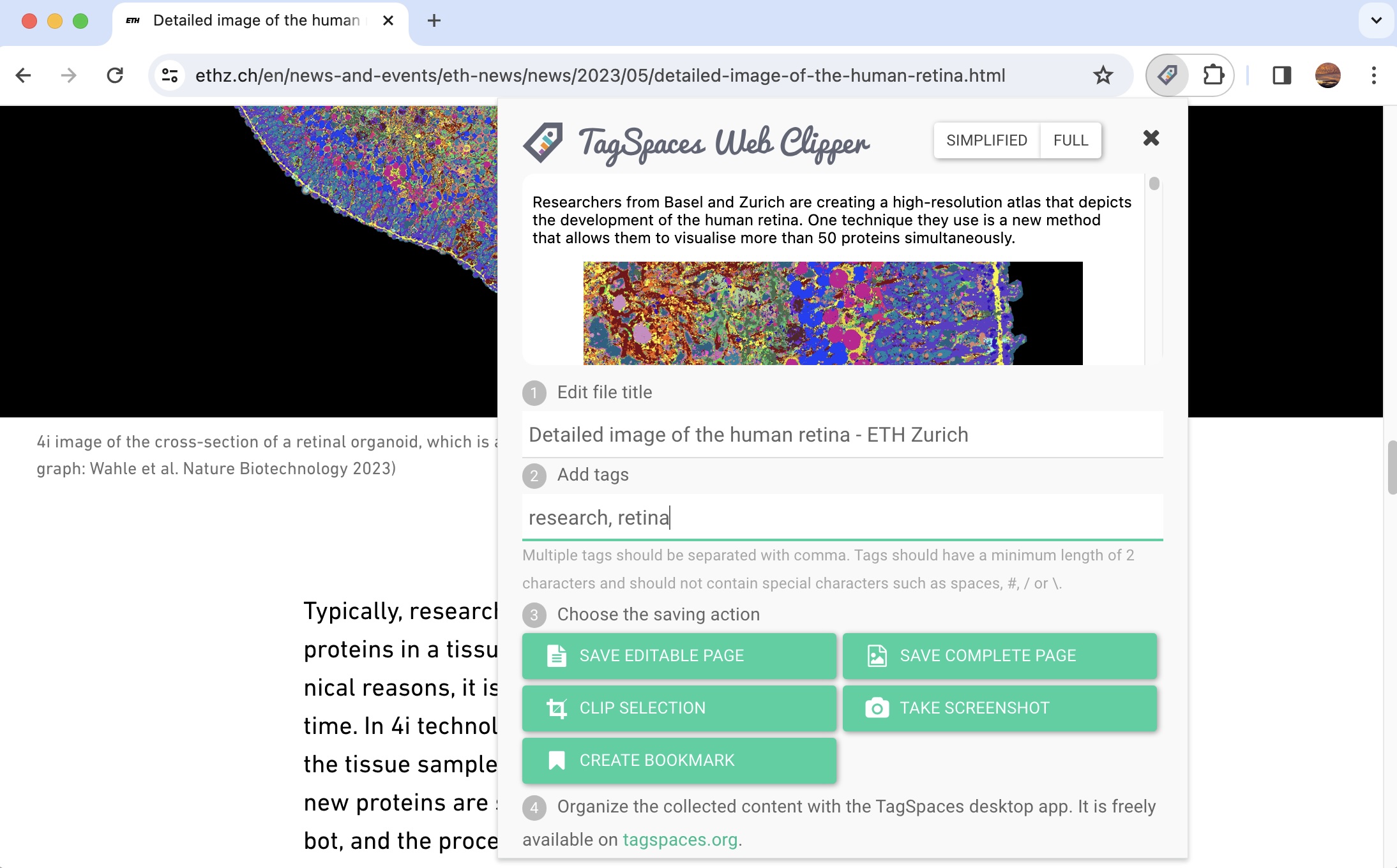
Managing Contacts & Places
Manage your contacts and favorite places (e.g., restaurants, coffee shops)
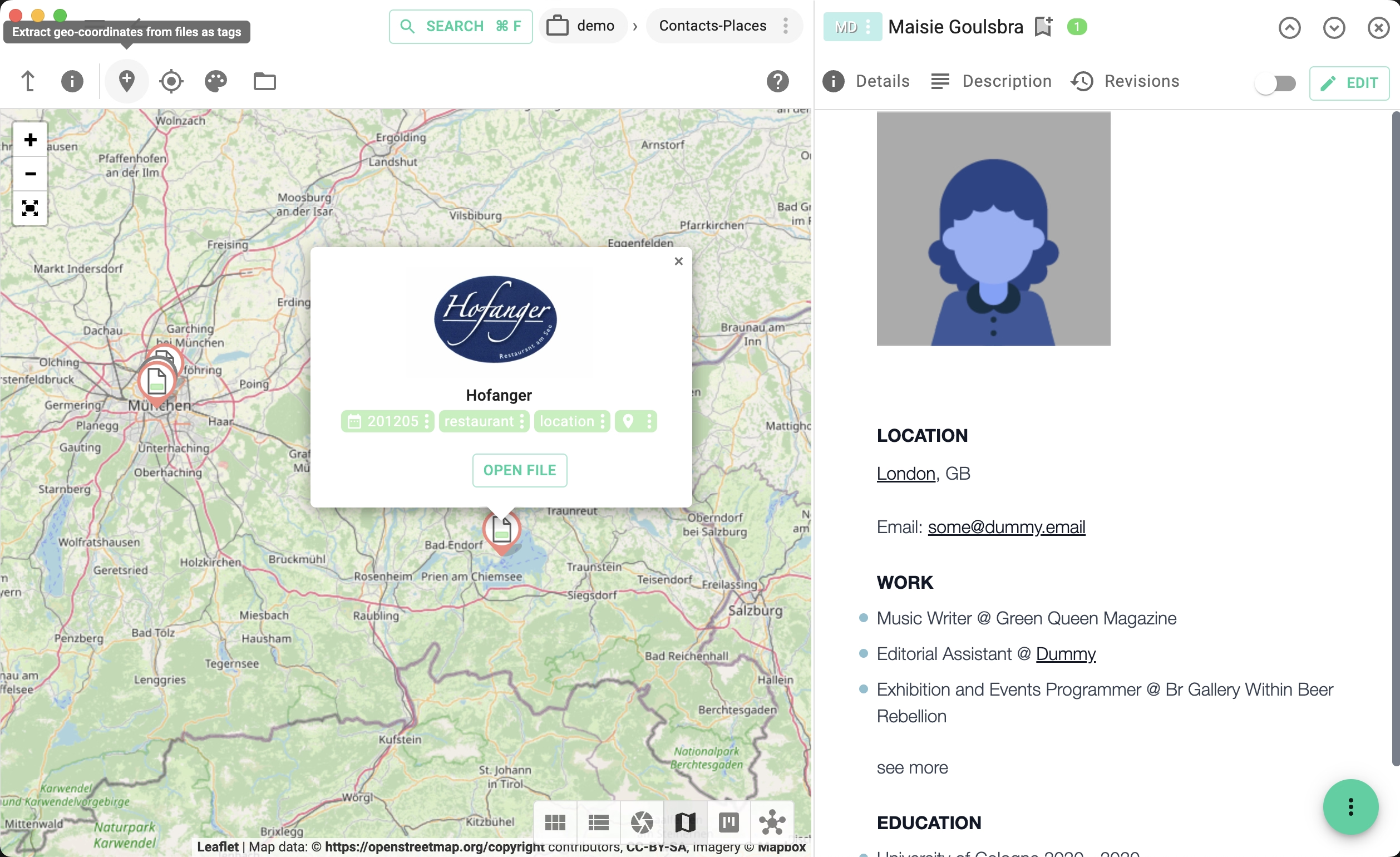
Manager for Tasks and To-Dos
In every folder you can have markdown files containing lists of related tasks and to-dos. Think of h...
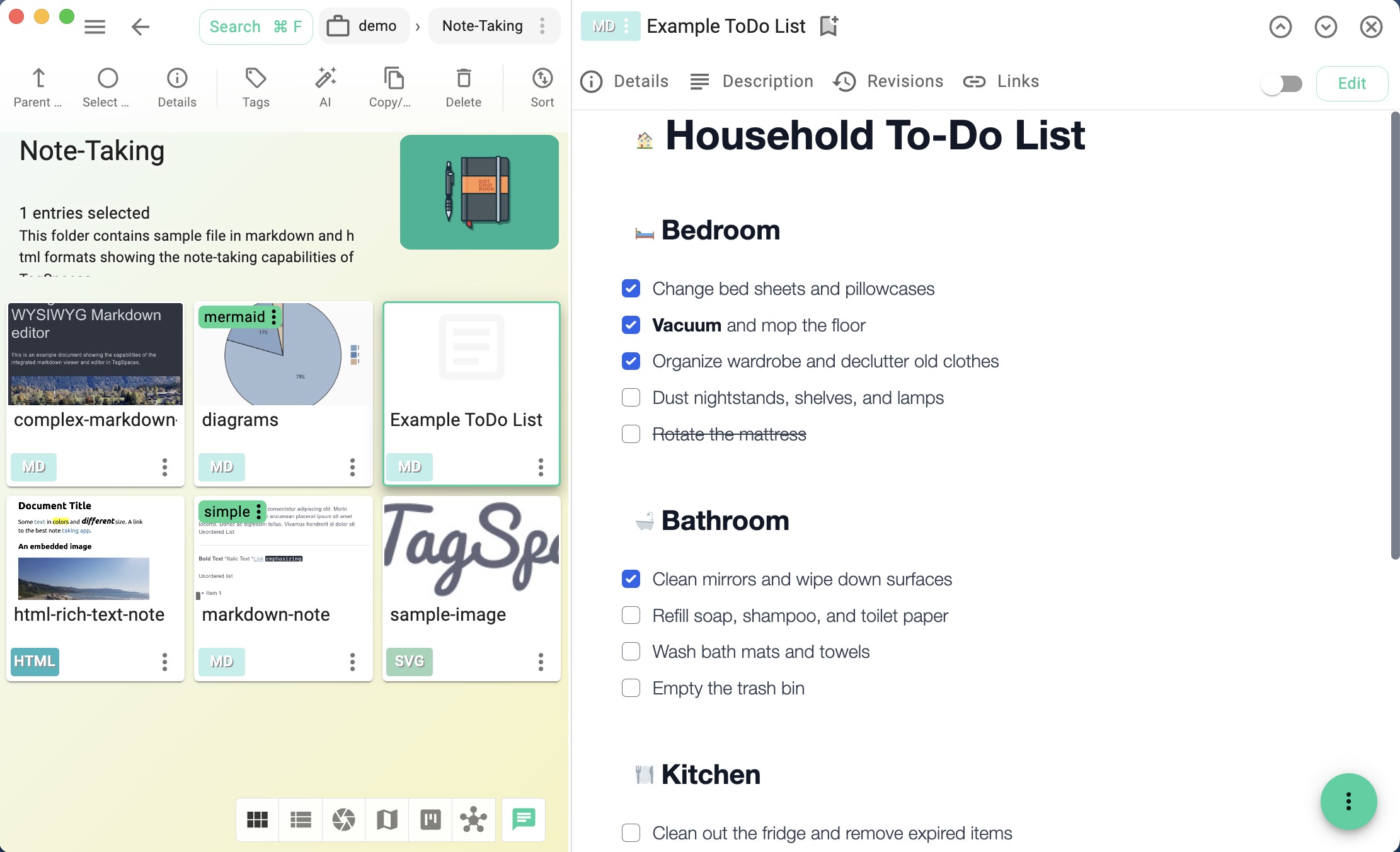
Your File-Based App
Send us screenshots and a short description of how you use TagSpaces, and we might feature it here.
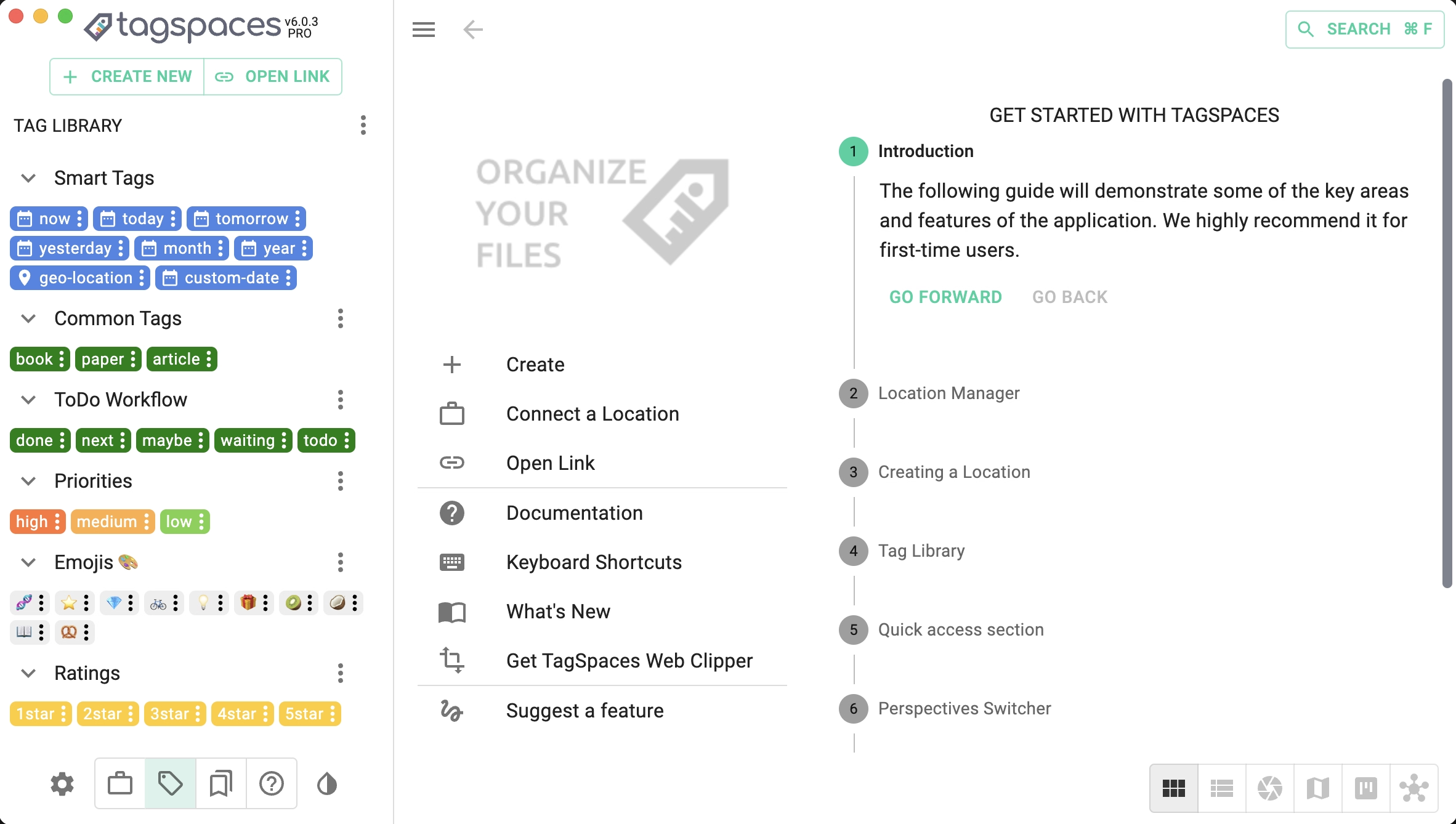
Foundations of the file-based apps
*️⃣ File-based apps offer a privacy-focused, flexible, and efficient alternative to cloud-based services or centralized database apps, ideal for users who prioritize local control and offline accessibility. Here are their key properties:
Privacy and Control
- Full Ownership of Data: In a file-based app, users store data locally, which gives them complete control over where and how their files are stored. There’s no need to trust third-party cloud providers with sensitive information.
- No Data Harvesting: Since the app operates locally, there's no risk of third-party tracking or data being harvested by cloud providers.
Offline Functionality
- Access Without Internet: File-based apps typically function fully offline, allowing users to work in environments with limited or no internet connectivity.
- Resilience to Outages: Files are stored locally, so the app remains accessible even if the cloud or remote servers go down.
Portability
- Easy to Move Data: Files can be easily copied, backed up, or moved between devices. Users can take their data on external drives or cloud sync services without relying on any specific platform or app ecosystem.
- Cross-Platform Compatibility: Files managed by a file-based app can be accessed across operating systems or devices, making it easier to switch platforms or manage files in different environments.
No Vendor Lock-In
- Open Formats and Flexibility: File-based apps often use standard, open file formats (e.g., text files, images, PDFs) that can be opened and edited with other software. This minimizes the risk of being locked into a specific app or service.
- Self-Hosting Options: Users can self-host their files or share them through their preferred storage solution, avoiding dependency on a particular vendor.
Security
- Local Storage Security: Users can apply their own encryption methods or use native encryption features on their device to secure their data without relying on cloud encryption methods.
- Reduced Attack Surface: Since the app is often offline and doesn’t require communication with external servers, there’s less exposure to hacking, breaches, or data leaks.
Speed and Efficiency
- Local Performance: File-based apps read and write data directly from the local system, often resulting in faster performance compared to web-based apps or cloud services, which depend on network speed and latency.
- No Sync Issues: Users don’t have to deal with delays or conflicts that sometimes occur in cloud-syncing apps.
Customization and Flexibility
- Custom File Organization: Users have the freedom to organize their files in the way they prefer, using folders, tags, or custom file naming systems without being constrained by a specific app’s structure.
- Integration with Existing Tools: Users can integrate file-based apps with their existing file management tools, backup solutions, or cloud sync services (e.g., Dropbox, Google Drive) if they choose to.
Transparency and Auditing
- Direct Access to Files: Users can directly view, inspect, and modify the files created by the app without needing specialized software or access to a database. This transparency is useful for auditing or making manual changes.
- Easy Backups: Users can easily create backups by copying their files to external drives, cloud services, or other devices without needing a specialized backup system.
Resilience to Company Shutdowns
- No Dependency on Provider’s Longevity: If we as TagSpaces developers go out of business or stops maintaining the app, users retain access to their files and can continue managing them with other software.
